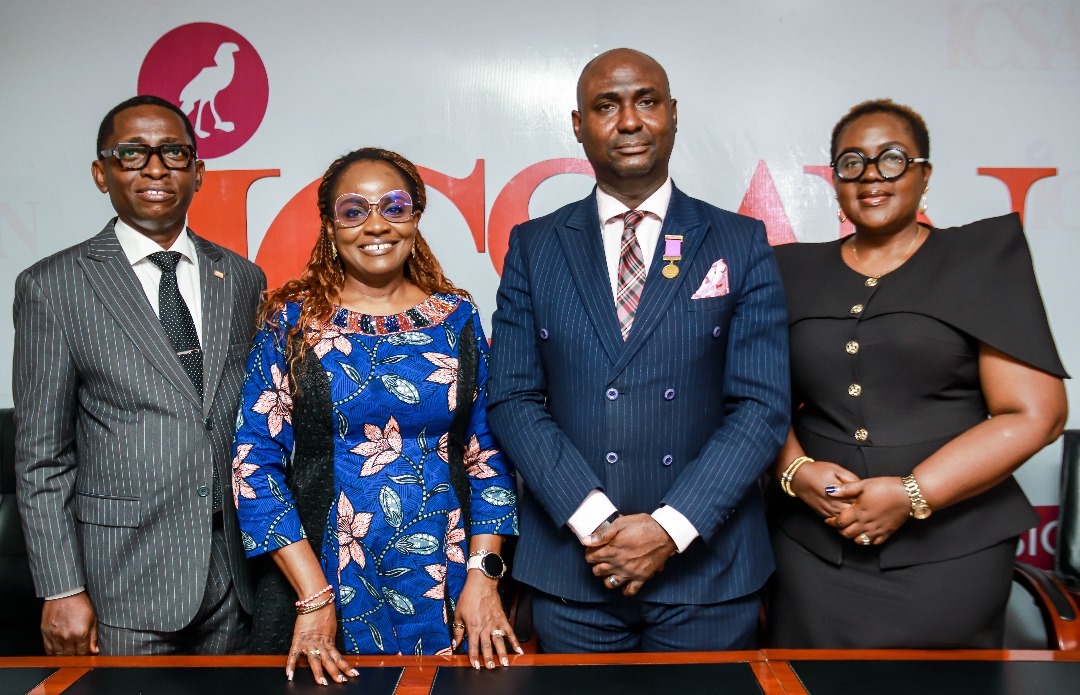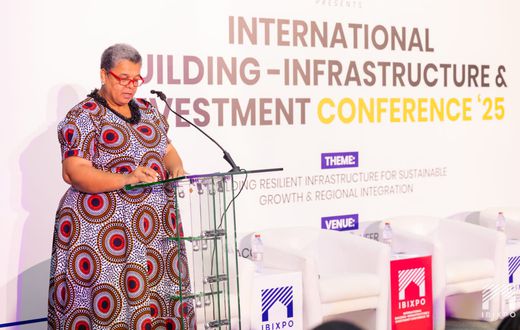As artificial intelligence (AI) transforms industries across the world, leading governance professionals in Nigeria are calling for a deeper embrace of ethical AI in the country’s business and professional sectors. The Institute of Chartered Secretaries and Administrators of Nigeria (ICSAN) is championing this push, urging corporate leaders and experts to see AI as a driver of efficiency, growth, and improved governance—provided it is deployed responsibly.
The Digital Shift: Why Ethical AI Matters in Nigeria
With Nigeria’s economy growing increasingly digitised, organisations face pressure to adapt, innovate, and remain globally competitive. However, as AI-powered systems reshape how businesses operate—from automation in banking to data analytics in governance—questions arise about ethics, best practices, and the readiness of local professionals to steer this revolution.
According to ICSAN Vice President Francis Olawale, who addressed a recent press gathering in Lagos, Nigeria can no longer afford to lag in adopting AI responsibly. “AI is not just a tool; it is a disruptive force that’s already influencing business decision-making, regulatory frameworks, and governance at all levels,” he stated. “For Nigeria, and indeed Africa, the real challenge is not just adoption, but ensuring ethical and purposeful use.”
Looking Ahead: ICSAN’s 49th Annual Conference
The conversation around responsible AI is set to take centre stage at the upcoming 49th ICSAN Annual Conference, themed “Reimagining Governance: Navigating the Artificial Intelligence Revolution for Excellence.” The event is scheduled for September 18-19, 2025, at Harbour Point, Victoria Island, Lagos, drawing together key players from Nigeria’s business, regulatory, and technology spaces.
Among the confirmed speakers are some of Nigeria’s most respected industry leaders. Senator Udo Udoma, Chairman of Seplat Energy, will serve as Conference Chairman, while Dr. Femi Oyenuga, Executive Director at Chams Holding Company, will deliver the keynote address. The dinner session will feature Dr. Emmanuel Ikhazobor, Chairman of Dangote Cement, alongside a line-up of expert panellists and thought leaders. Their collective experiences aim to spark dialogue and inspire change in how organisations manage AI adoption.
The Challenges: Bridging Skills Gaps and Building Trust
Olawale highlighted a persistent challenge: even as the digital era rapidly unfolds, many professionals remain overwhelmed by the pace and scope of technological transformation. “We are in the midst of a digital revolution, yet significant numbers are still trying to catch up with its complexity,” he observed. “To truly benefit, we must rethink how we govern ourselves—as individuals and as organisations.”
He noted that the integration of AI into commercial environments, if not guided by ethical frameworks, could create new risks. These range from issues around data privacy to potential job displacement and algorithmic bias. ICSAN urges stakeholders to build strong internal policies and maintain oversight, stressing that “Nigeria must not only adapt to this revolution but also provide the framework for its ethical and responsible deployment.”
Opportunities for Business and Professional Growth
The conference is designed to move beyond theoretical discussion and offer actionable strategies for Nigerian professionals. According to Olawale, participants will gain:
- Practical insights to overcome the fear and uncertainty that often accompany major technological changes
- Opportunities to view AI as both a creative tool and enabler of professional efficiency
- Chances to engage with peers, build networks, and form partnerships with seasoned leaders from across West Africa
Beyond the learning sessions, the event promises vibrant networking opportunities, including an exclusive dinner where ideas can be exchanged in a more informal setting. This focus on relationship-building is crucial, given that shared knowledge and collaboration often spark real innovation within Africa’s professional community.
AI and Corporate Governance: The West African Context
Nigeria, as Africa’s most populous nation and largest economy, is uniquely positioned to set the pace for responsible AI in West Africa. However, the journey is not without hurdles. The region faces:
- Infrastructure limitations, including inconsistent power and limited broadband access in rural areas
- Regulatory ambiguity, as governments work to update laws and frameworks for digital technologies
- Skills shortages, with a need for training and up-skilling among managers and boards
- Public and stakeholder skepticism around data protection, transparency, and ethical use of AI
Ghana and other neighbouring countries confront similar issues and are closely observing Nigeria’s approach to balancing innovation with oversight. This cross-border significance means the outcomes from forums such as ICSAN’s conference will resonate far beyond Lagos.
Expert Perspectives: Learning from Global and Local Experiences
“While global standards evolve, Nigeria and the wider African region must tailor solutions that reflect local realities,” explains technology policy analyst Bisi Akanji. “Our strengths include a young, tech-savvy population and a growing entrepreneurial ecosystem, but we must support this with robust structures for ethics and compliance.”
Local business leaders point out that multinationals are increasingly seeking assurances about regulatory clarity and data safeguards before making big investments in African tech ventures. By championing ethical AI, professionals can position Nigeria as a safe, reliable, and forward-looking destination for global partnerships.
What’s Next? Building Capacity and Fostering Trust
In the months leading up to the ICSAN conference, focus will be on capacity-building workshops, stakeholder consultations, and advocacy for policy reform. Organisers stress that the conversation is just beginning; as AI tools become more embedded in government and business, ongoing engagement between the private sector, civil society, and regulators will be key.
ICSAN encourages professionals to keep learning, participate in training sessions, and advocate for transparent policies within their organisations. This proactive mindset prepares Nigeria, and indeed West Africa, to capture the opportunities of AI without losing sight of social responsibility.
Conclusion: Redefining Professional Excellence in the AI Era
The rise of artificial intelligence is inevitable, but what sets successful organisations apart is how they harness AI’s power while upholding integrity and trust. Events like ICSAN’s annual conference offer valuable platforms to debate, learn, and shape Nigeria’s digital future together.
Are you a corporate leader or professional considering AI for your organisation? How can Nigeria and West African nations create a balance between innovation and ethical oversight?
Share your thoughts in the comments section below and stay connected as we bring more updates on this developing story.
Do you have experiences with AI in your workplace or insights on governance in Nigeria, Ghana, or West Africa? Want to share your story or have an opinion about this topic? We’re keen to hear from you!
Email your news tips, business insights, or policy stories to story@nowahalazone.com or general queries to support@nowahalazone.com.
Join the debate and follow us on Facebook, X (Twitter), and Instagram for more business and tech updates!










